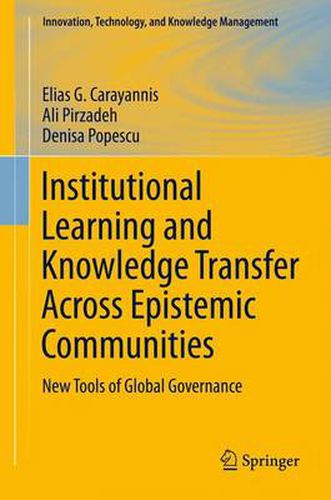Readings Newsletter
Become a Readings Member to make your shopping experience even easier.
Sign in or sign up for free!
You’re not far away from qualifying for FREE standard shipping within Australia
You’ve qualified for FREE standard shipping within Australia
The cart is loading…






This title is printed to order. This book may have been self-published. If so, we cannot guarantee the quality of the content. In the main most books will have gone through the editing process however some may not. We therefore suggest that you be aware of this before ordering this book. If in doubt check either the author or publisher’s details as we are unable to accept any returns unless they are faulty. Please contact us if you have any questions.
Over the past several decades, as the pace of globalization has accelerated, operational issues of international coordination have often been overlooked. For example, the global financial crisis that began in 2007 is attributed, in part, to a lack of regulatory oversight. As a result, supranational organizations, such as the G-20, the World Bank, and the International Monetary Fund, have prioritized strengthening of the international financial architecture and providing opportunities for dialogue on national policies, international co-operation, and international financial institutions.
Prevailing characteristics of the global economic systems, such as the increasing power of financial institutions, changes in the structure of global production, decline in the authority of nation-states over their national economy, and creation of global institutional setting, e.g., global governance have created the conditions for a naturally evolving process towards enabling national epistemic communities to create institutions that comply with global rules and regulations can control crises.
In this context, transfer of technical knowledge from the larger organizations and its global epistemic communities to member communities is becoming a policy tool to convince participants in the international system to have similar ideas about which rules will govern their mutual participation. In the realm of finance and banking regulation, the primary focus is on transfer of specialized and procedural knowledge in technical domains (such as accounting procedures, payment systems, and corporate governance principles), thereby promoting institutional learning at national and local levels. In this volume, the authors provide in-depth analysis of initiatives to demonstrate how this type of knowledge generated at the international organization level, is codified into global standards, and disseminated to members, particularly in the developing world, where the legal and regulatory infrastructure is often lacking.
They argue that despite the challenges, when a country intends to join the global system, its institutions and economic structures need to move toward the global norms. In so doing, they shed new light on the dynamics of knowledge transfer, financial regulation, economic development, with particular respect to supporting global standards and avoiding future crises.
$9.00 standard shipping within Australia
FREE standard shipping within Australia for orders over $100.00
Express & International shipping calculated at checkout
This title is printed to order. This book may have been self-published. If so, we cannot guarantee the quality of the content. In the main most books will have gone through the editing process however some may not. We therefore suggest that you be aware of this before ordering this book. If in doubt check either the author or publisher’s details as we are unable to accept any returns unless they are faulty. Please contact us if you have any questions.
Over the past several decades, as the pace of globalization has accelerated, operational issues of international coordination have often been overlooked. For example, the global financial crisis that began in 2007 is attributed, in part, to a lack of regulatory oversight. As a result, supranational organizations, such as the G-20, the World Bank, and the International Monetary Fund, have prioritized strengthening of the international financial architecture and providing opportunities for dialogue on national policies, international co-operation, and international financial institutions.
Prevailing characteristics of the global economic systems, such as the increasing power of financial institutions, changes in the structure of global production, decline in the authority of nation-states over their national economy, and creation of global institutional setting, e.g., global governance have created the conditions for a naturally evolving process towards enabling national epistemic communities to create institutions that comply with global rules and regulations can control crises.
In this context, transfer of technical knowledge from the larger organizations and its global epistemic communities to member communities is becoming a policy tool to convince participants in the international system to have similar ideas about which rules will govern their mutual participation. In the realm of finance and banking regulation, the primary focus is on transfer of specialized and procedural knowledge in technical domains (such as accounting procedures, payment systems, and corporate governance principles), thereby promoting institutional learning at national and local levels. In this volume, the authors provide in-depth analysis of initiatives to demonstrate how this type of knowledge generated at the international organization level, is codified into global standards, and disseminated to members, particularly in the developing world, where the legal and regulatory infrastructure is often lacking.
They argue that despite the challenges, when a country intends to join the global system, its institutions and economic structures need to move toward the global norms. In so doing, they shed new light on the dynamics of knowledge transfer, financial regulation, economic development, with particular respect to supporting global standards and avoiding future crises.